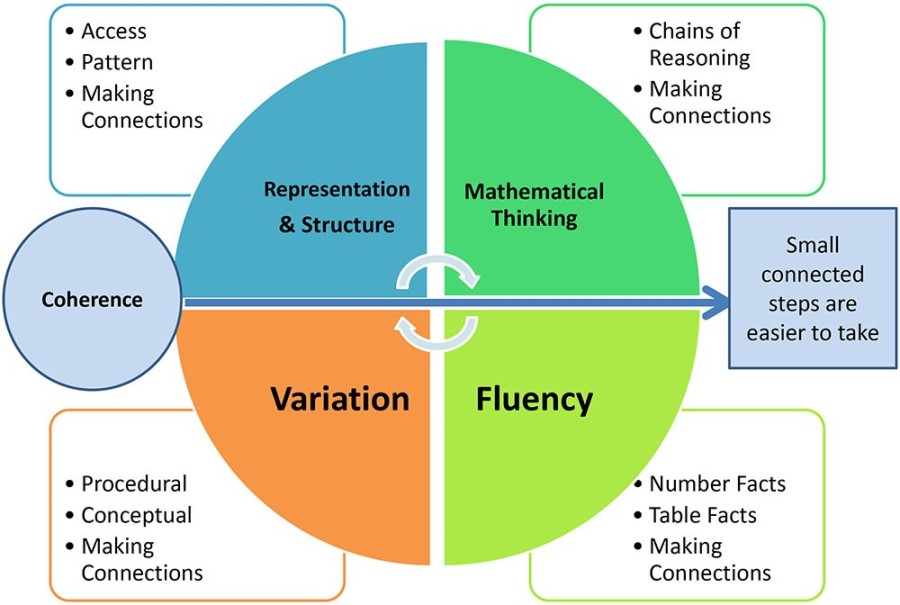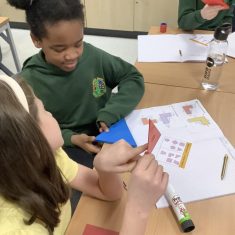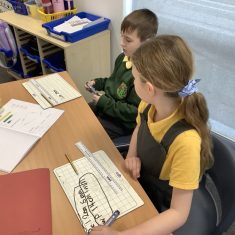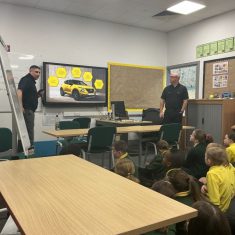Our Vision

Mrs Chapman – Deputy Head Teacher / Key Stage 1 Lead
Mathematics is a creative and highly inter-connected discipline that has been developed over centuries, providing the solution to some of history’s most intriguing problems. It is essential to everyday life, critical to science, technology and engineering, and necessary for financial literacy and most forms of employment. A high-quality mathematics education therefore provides a foundation for understanding the world, the ability to reason mathematically, an appreciation of the beauty and power of mathematics, and a sense of enjoyment and curiosity about the subject.
Mrs S. Chapman – Mathematics Lead
Purpose of study
Mathematics is a creative and highly inter-connected discipline that has been developed over centuries, providing the solution to some of history’s most intriguing problems. It is essential to everyday life, critical to science, technology and engineering, and necessary for financial literacy and most forms of employment. A high-quality mathematics education therefore provides a foundation for understanding the world, the ability to reason mathematically, an appreciation of the beauty and power of mathematics, and a sense of enjoyment and curiosity about the subject.
A Mastery Approach
At Harlow Green Primary school, we embrace the aims of the National Curriculum: fluency, accuracy, precision, reasoning and problem solving. ‘Mastery’ approaches to teaching mathematics are used to ensure deep, long-term, secure and adaptable understanding of the subject. We believe that mastery of mathematics is a tool for life and teachers reinforce an expectation that all pupils are capable of achieving high standards in mathematics.
Our Mastery approach is underpinned by the Five Big Ideas of Mastery which is outlined below.

Coherence
Lessons are broken down into small connected steps that gradually unfold the concept, providing access for all children and leading to a generalisation of the concept and the ability to apply the concept to a range of contexts.
Representation and Structure
Representations used in lessons expose the mathematical structure being taught, the aim being that students can do the maths without recourse to the representation.
Mathematical Thinking
If taught ideas are to be understood deeply, they must not merely be passively received but must be worked on by the student: thought about, reasoned with and discussed with others.
Fluency
Quick and efficient recall of facts and procedures and the flexibility to move between different contexts and representations of mathematics.
Variation
Variation is twofold. It is firstly about how the teacher represents the concept being taught, often in more than one way, to draw attention to critical aspects, and to develop deep and holistic understanding. It is also about the sequencing of the episodes, activities and exercises used within a lesson and follow up practice, paying attention to what is kept the same and what changes, to connect the mathematics and draw attention to mathematical relationships and structure.
IMPLEMENTATION
Aims
The national curriculum for mathematics aims to ensure that all pupils:
- become fluent in the fundamentals of mathematics, including through varied and frequent practice with increasingly complex problems over time, so that pupils develop conceptual understanding and the ability to recall and apply knowledge rapidly and accurately.
The following programmes support this:
- reason mathematically by following a line of enquiry, conjecturing relationships and generalisations, and developing an argument, justification or proof using mathematical language
- can solve problems by applying their mathematics to a variety of routine and non-routine problems with increasing sophistication, including breaking down problems into a series of simpler steps and persevering in seeking solutions.
Each year group has their own long term plan. The expectation is that the majority of pupils will move through this at broadly the same pace. However, decisions about when to progress should always be based on the security of pupils’ understanding and their readiness to progress to the next stage. Pupils who grasp concepts rapidly should be challenged through being offered rich and sophisticated problems before any acceleration through new content. Those who are not sufficiently fluent with earlier material should consolidate their understanding, including through additional practice, before moving on.
We are a Mastering Number School, which aims to secure firm foundations in the development of good number sense for all children in Reception , Year 1 and Year 2. In addition, knowledge of multiplication and division and its applications forms the single most important aspect of the KS2 curriculum, and is the gateway to success at secondary school. Mastering Number in KS2 is taught in Years 4 and 5 to develop fluency in multiplication and division facts, and a confidence and flexibility with number that exemplifies good number sense.
Useful Documents:
Year 4 Multiplication Times Tables Check information for parents
Calculation Methods
Although we aim to support children to have the mental capacity to calculate with confidence and accuracy using mental methods, there comes a point when the numbers involved are too difficult and, consequently, require written methods.
To support children to calculate with the four operations (addition, subtraction, multiplication, division), we have selected methods which the children can learn through a systematic approach and which develop over the time in KS1 and KS2.
We hope the videos will help provide guidance of how the methods are employed, especially for parents/carers who may wish to support their children at home.







